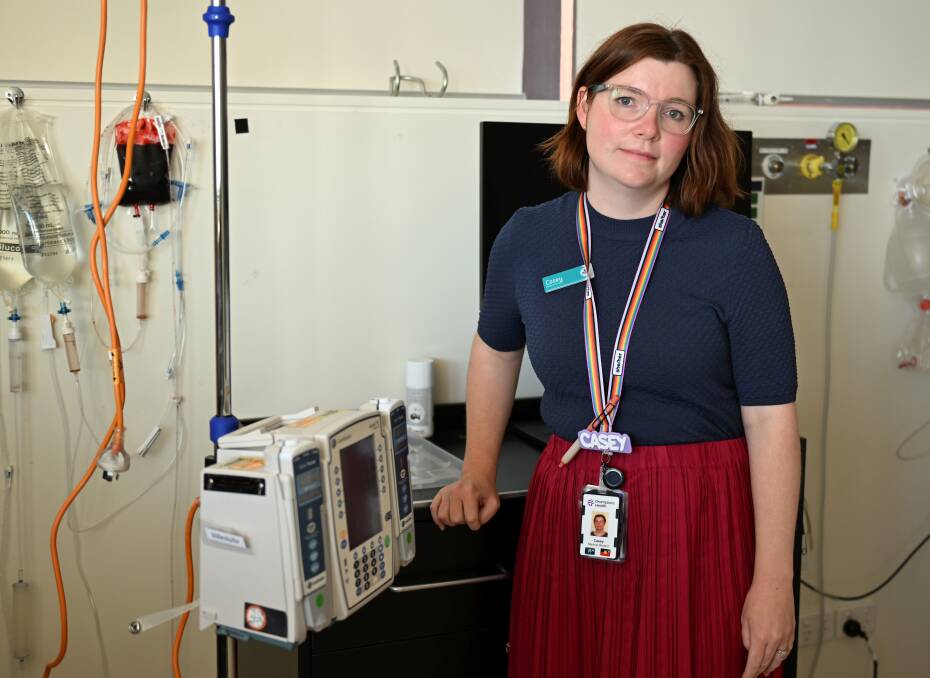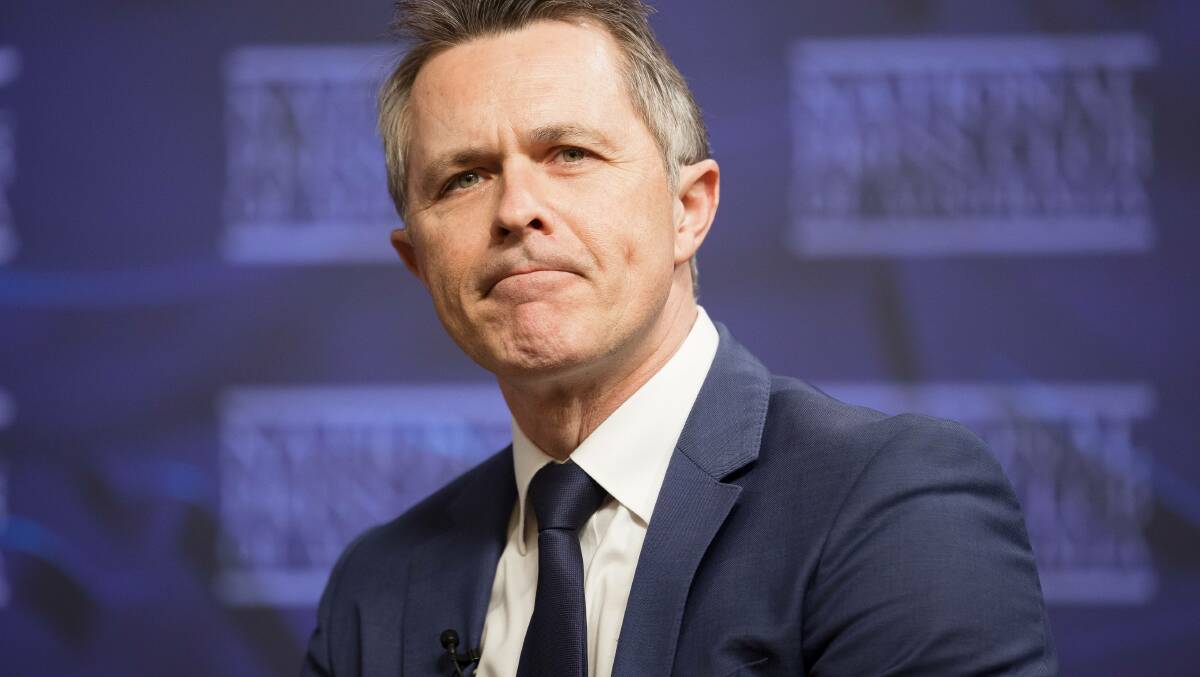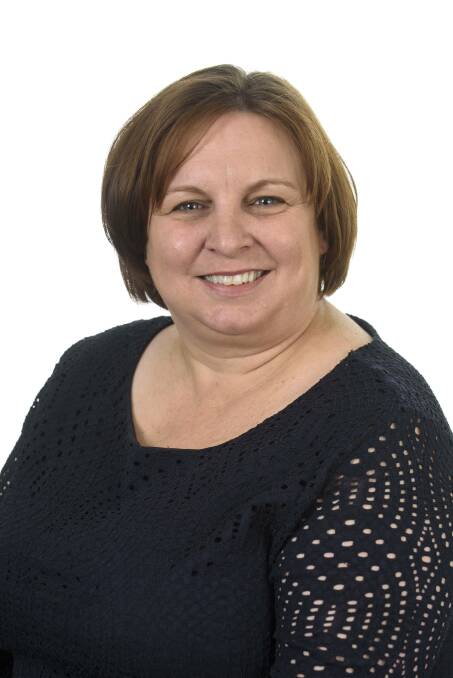
Casey McRae works five days a week - often starting at 7.30am and clocking off after 5pm - for no pay.
When she gets home there are assignments to do, or she tries to find time for a shift at the local pharmacy to make ends meet.
This is her life for the next twenty months.
Ms McRae, from Ballarat in Victoria, is one of thousands of medical students doing their two years of mandatory unpaid placement in hospitals across the country.
That is more than three times the requirement for any other vocation, yet medical students have been largely left out of the discussion about the financial strife many Australian trainees are facing.
Federal education minister Jason Clare announced funding on May 5 to provide support for "the students who need it most".
"Placement poverty is a real thing," said Mr Clare.
"This is practical support for practical training."
But the $320 per week payment will only be available to nursing, midwifery, teaching and social work students.
Despite facing the greatest risk of placement poverty, medical students such as Ms McRae were overlooked.
Not all born with a silver spoon
Deakin University associate professor Laura Gray said many people assume medical students all come from affluent backgrounds and could afford to do years of unpaid placement.
"I think we need to dispel that myth that medical students are just from the wealthy eastern suburbs of Melbourne, because it's not it's really not true," she said.
Professor Gray is deputy director of Deakin's Drapac Centre for Equity in Health Professions Education, whose mission is to create a more diverse medical fraternity.
"While that [silver spoon] myth was never really true, we're working to increase that diversity even more," Professor Gray said.
"But we can't increase the diversity in the cohort if we can't make sure that they thrive."
Placement poverty is the main stumbling block.
Falling through the cracks
Ms McRae was born and raised in regional Victoria and bristled at the assumption all medical students were well-to-do.
"I'm not from a rich family," she said.
"I was the first in my family to graduate high school and the first to go to university."

Deakin University's four-year Doctor of Medicine Rural Training Stream, where the first two years are spent studying and the final two are full-time placements.
During her first two years Ms McRae commuted from Ballarat to Geelong for classes.
"That was tough, commuting every day," she said.
"Sometimes I'd be pulling the swag out of the back of the car to sleep on someone's floor."
Ms McRae isn't eligible for Centrelink because she's married and her husband earns more than the $56,000 per year cutoff. But she said making his income work for the two of them has been incredibly tough.
It just gets hard when you find you don't have any more hours in the day.
- Casey McRae
"We made a plan at the outset for how we were going to make things work on just one income, but that was before the cost-of-living crisis," she said.
"My eight to ten hours a week at the pharmacy went a lot further a year and a half ago."
Ms McRae said she and her husband had to just keep tightening their belts.
"I think it just gets hard when you find you don't have any more hours in the day," she said.
"Like I couldn't just go and get another job that might supplement the income, because there's just no hours left.
"Honestly, I just think of it all as I'm on a hamster wheel. And you're just running, and running, and the end's getting sooner that you can jump off it, but it's stressful."
'Living hand-to-mouth'
Many of the Deakin medical students have struggled to find the money for regular meals.
A survey of 141 students found nine in 10 were in financial hardship and university staff have resorted to food hamper drops.
"It's full time, so 7,30 in the morning to 5,30 at night and then they go home and study, so it's really hard for them to balance all of that and to thrive," Professor Gray said.
"Whenever we talked to students about this we just get these incredible stories of the challenges that they face, struggling to support themselves.
"A lot of them are really living hand to mouth."
Many students have to take a year off to save money to tide them over through their degree. Others are forced to drop out entirely.
Deakin does what it can to support the most vulnerable students with scholarships and flexible working and studying arrangements, Professor Gray said.
"There have been efforts by the university to assist the students to get paid work in the hospitals where they're doing training," she said.
"We'd really like to see something happen in Victoria like occurs in New South Wales and elsewhere, where senior students who are pretty close to graduation with really good skills can be paid for the work that they do.
"But in the future we would love to see more government support."
Regional solution to a regional problem
Healthcare in regional Australia is confronting a generational crisis, with access to both specialists and GPs declining in large sections of the country.
All medical students are required to do a regional rotation in their degree, but health services struggle to persuade city students to stay, and many country kids put down roots in the city during their studies.

Deakin's solution has been to target mature-age students from country areas who have already put down roots in their communities, and give them the chance to do their entire degree in the regions.
The idea is these students will stay and serve their local area for the next generation. But studying and training as a regional student often means covering huge distances and constantly being uprooted from your job and support network.
Mature-age student Lisa Ross said getting these students through the degree was a huge challenge.
'An immense sacrifice'
Ms Ross is a physiotherapist of 15 years and a mother of three. She and her family moved from Horsham in far-west Victoria to Geelong so she could retrain as a doctor.
"I just saw the lack of GPs out in the country and felt I could do more for my community as a doctor," she said.
"In theory we knew what we were signing up for but the reality is I guess another dimension.
I'm probably sacrificing... at least $100,000 salary a year for four years.
- Lisa Ross
"It is definitely a massive financial strain."
Ms Ross doesn't qualify for government or university support because of her husband's income. But with a mortgage, bills and three children to support, money is a heavy, constant burden.
"I'm probably sacrificing, at my age, at least $100,000 salary a year for four years, so it's not about money for me at all in terms of changing career," she said.
"It's an immense sacrifice."
'I hope they make it'
Ms Ross starts her placement in Ballarat next year. Having already moved from Horsham to Geelong, she won't uproot her family again.
"I'll be studying full time and working full-time and driving 200 km a day and we'll be juggling looking after three kids," she said.
"Meanwhile we can't afford for my husband to work less than full-time, because I can't get any study assistance."
Ms Ross said many of the people she knew in other healthcare professions who would make "incredible" doctors simply didn't consider it because of the impracticality of retraining.
She said she hoped the others in her course would make it through.

"I know that they'll make great doctors, they've all got fabulous skills good backgrounds and are really connected to regional communities. You know we're all going to make a big difference to the health workforce," she said.
"But the reality of getting us to the end like the financial strain is it's really it's really stressful."
'It is ridiculous' medical students have been left out
While Deakin is at the forefront of regional medical training for regional students, placement poverty is a critical issue of regional medical students across Australia.
Rural Doctors' Association of Australia chief executive Peta Rutherford said in large states like Western Australia and Queensland the tyranny of distance was an even bigger challenge.
"This is definitely a live issue and there's marked disadvantage for students studying rurally, whether or not they're from the country originally," Ms Rutherford said.
"Extended placements are great, but they need the support because it comes at a real financial cost."
She said she was in discussions with the federal government.
"To not include medical students in this recent support is ridiculous when there's a clear need for more doctors in the regions," Ms Rutherford said.
ACM asked the federal health minister why medical students had been overlooked and whether there were plans for support.
Mr Clare said he had been following advice from 12-month review into the Australian university sector.
He said he wasn't ruling out further support.
"That's where the report says that we should focus first," Mr Clare said.
"It might be that down the track, governments will look at other areas or that industry can provide important help here as well.
"But at the moment, what we're focusing on are the areas that the report said that we should focus on."


